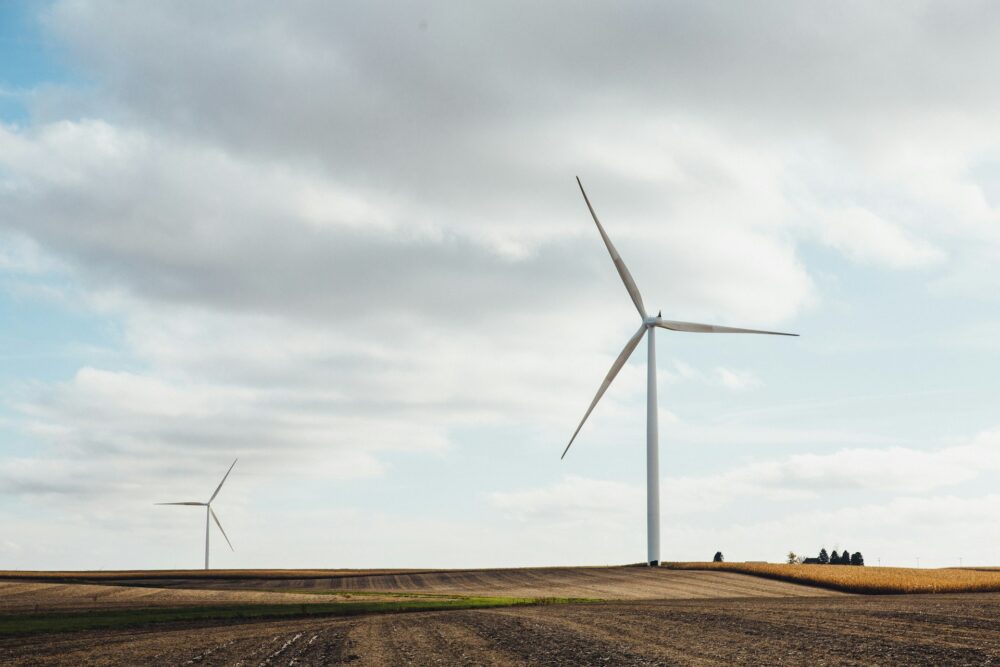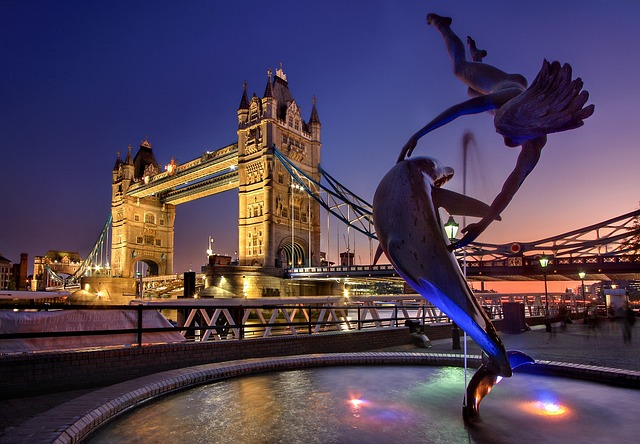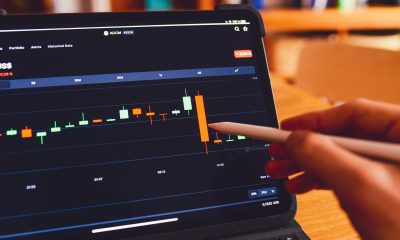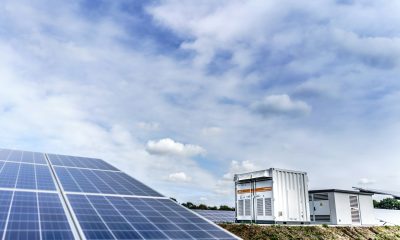Africa
Energy Transition in the United Kingdom: Morocco at the Heart of New Ambitions
Morocco aims to drastically expand its renewable energy by 2030, quadrupling offshore wind, tripling solar, and doubling onshore wind. Partnering with the UK, Morocco’s hydrogen strategy and Xlinks project—a $16 billion subsea cable linking Moroccan renewables to the UK—could provide 8% of Britain’s electricity needs, bolstering UK energy independence and CO₂ reduction.

Under the leadership of the Labour Party, the United Kingdom is setting ambitious goals to become a clean energy superpower. With the creation of Great British Energy, the country is banking on the development of hydrogen, a sector in which Morocco plays a key role. A unique collaboration project is already underway, with Xlinks, connecting the two nations for a sustainable future.
Faced with challenges exacerbated by the global crisis and rising prices, the United Kingdom, under the leadership of the newly elected Labour Party, is seeking to transform its energy sector. A cornerstone of this vision is the creation of Great British Energy, a public company dedicated to clean energy, with a budget of £8.3 billion.
Morocco, thanks to its solar potential and its ambitious roadmap for green hydrogen, is positioning itself as a key partner, particularly through the Xlinks project. The Labour Party, under the leadership of Keir Starmer and Ed. Miliband, is making a point of making the United Kingdom a world leader in green energy.
The goal is to quadruple offshore wind energy, triple solar energy, and double onshore wind by 2030. This ambitious energy transition is based on an unprecedented legislative framework, the Energy Independence Act, which aims to strengthen the country’s security.
In addition, the development of a strategy around hydrogen and marine energies is at the heart of the project, with colossal investments in carbon capture and energy storage. The creation of Great British Energy, with an announced allocation of £8.3 billion, embodies this desire to free itself from fossil fuels and build a sustainable future. The massive investments in transition planned by the United Kingdom will generate thousands of jobs, particularly in Scotland, where the headquarters of Great British Energy will be established.

Morocco at the heart of these strategies
At the heart of this British revolution, Morocco occupies a central place, notably thanks to its ambitious strategy for green hydrogen. With its solar and wind potential, the Kingdom is seen as a model to follow in terms of renewables. Its roadmap for green hydrogen, unveiled in 2021, aims to position the country as a key player in the production and export of this energy. The Xlinks project is the perfect example.
Worth an estimated $16 billion, it symbolises the synergy between the two countries. It consists of a 3,800km submarine cable linking Moroccan solar and wind farms to the UK, enabling the delivery of 10.5GW of electricity. This would cover almost 8% of Britain’s needs by 2030, a key contribution to achieving the country’s climate targets.
This strategic partnership should not only strengthen the UK’s energy independence, but also significantly reduce its CO2 emissions. For several years now, Morocco has stood out for its ambitious renewable roadmap, aiming to reach 52% of its energy mix from renewable sources by 2030. This vision is perfectly aligned with the needs of the United Kingdom, particularly in terms of green hydrogen, one of the solutions envisaged for rapid decarbonization.
Indeed, Morocco benefits from unique natural conditions to produce this energy, thanks to its sunshine and wind potential. The Xlinks project embodies the synergy between the two nations. This titanic project aims to provide up to 8% of the United Kingdom’s electricity needs in solar and wind energy captured in the Moroccan desert, thus marking a crucial step for British energy independence.
Strengthened cooperation in energy transition
As part of this growing cooperation, an event was organized in Rabat by the Ministry of Energy Transition, in partnership with the British Embassy and the Council for Energy Transition. This meeting brought together Moroccan officials, international experts and strategic partners to discuss ways to accelerate the transition.
Zakaria Hachlaf, Secretary General of the Ministry of Energy Transition and Sustainable Development, reaffirmed Morocco’s commitment to increasing the use of renewables, particularly in the field of green hydrogen.
The discussions provided an opportunity to take stock of progress on the national roadmap and explore possible future collaborations with the United Kingdom. This event is in line with the commitments made at COP 26, when the United Kingdom and Morocco had already demonstrated their willingness to cooperate on large-scale projects.
This collaboration, driven by the Xlinks project, opens the way to new perspectives for both nations. While the United Kingdom aims to become a world leader in clean energy, Morocco is positioning itself as an essential hub for supplying northern countries with green hydrogen and other renewables.
__
(Featured image by Drew Hays via Unsplash)
DISCLAIMER: This article was written by a third party contributor and does not reflect the opinion of Born2Invest, its management, staff or its associates. Please review our disclaimer for more information.
This article may include forward-looking statements. These forward-looking statements generally are identified by the words “believe,” “project,” “estimate,” “become,” “plan,” “will,” and similar expressions. These forward-looking statements involve known and unknown risks as well as uncertainties, including those discussed in the following cautionary statements and elsewhere in this article and on this site. Although the Company may believe that its expectations are based on reasonable assumptions, the actual results that the Company may achieve may differ materially from any forward-looking statements, which reflect the opinions of the management of the Company only as of the date hereof. Additionally, please make sure to read these important disclosures.
First published in LES ECO.ma. A third-party contributor translated and adapted the article from the original. In case of discrepancy, the original will prevail.
Although we made reasonable efforts to provide accurate translations, some parts may be incorrect. Born2Invest assumes no responsibility for errors, omissions or ambiguities in the translations provided on this website. Any person or entity relying on translated content does so at their own risk. Born2Invest is not responsible for losses caused by such reliance on the accuracy or reliability of translated information. If you wish to report an error or inaccuracy in the translation, we encourage you to contact us

-

 Impact Investing2 weeks ago
Impact Investing2 weeks agoClimate Losses Drive New Risk Training in Agriculture Led by Cineas and Asnacodi Italia
-

 Crowdfunding1 week ago
Crowdfunding1 week agoReal Estate Crowdfunding in Mexico: High Returns, Heavy Regulation, and Tax Inequality
-

 Africa2 weeks ago
Africa2 weeks agoAgadir Allocates Budget Surplus to Urban Development and Municipal Projects
-

 Cannabis4 days ago
Cannabis4 days agoSouth Africa Proposes Liberal Cannabis Regulations with Expungement for Past Convictions























